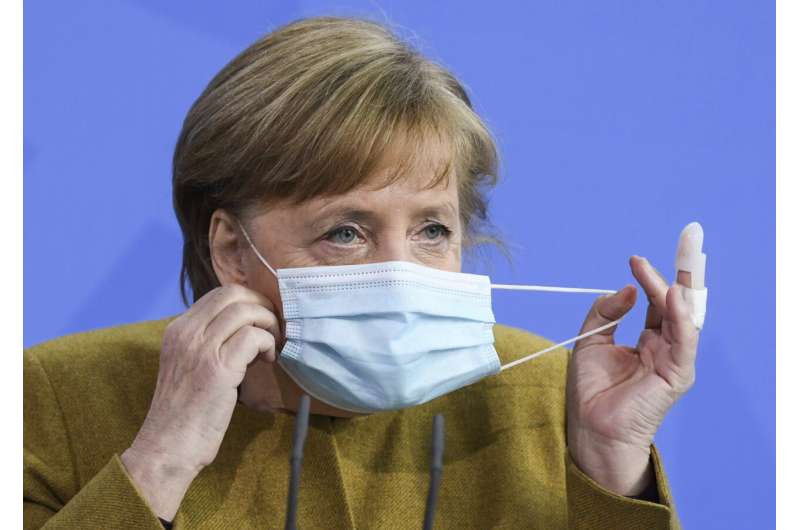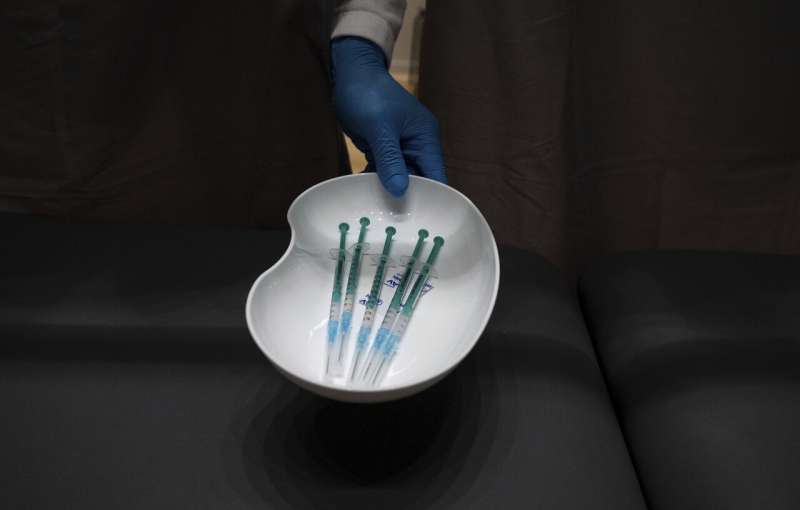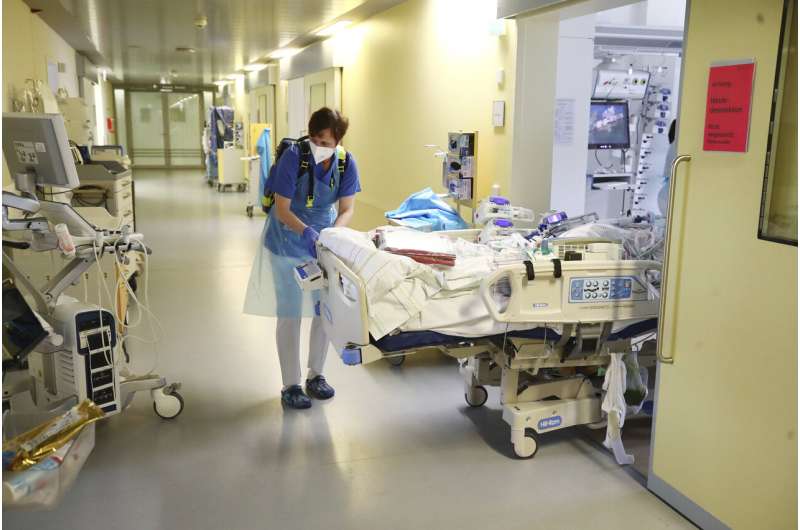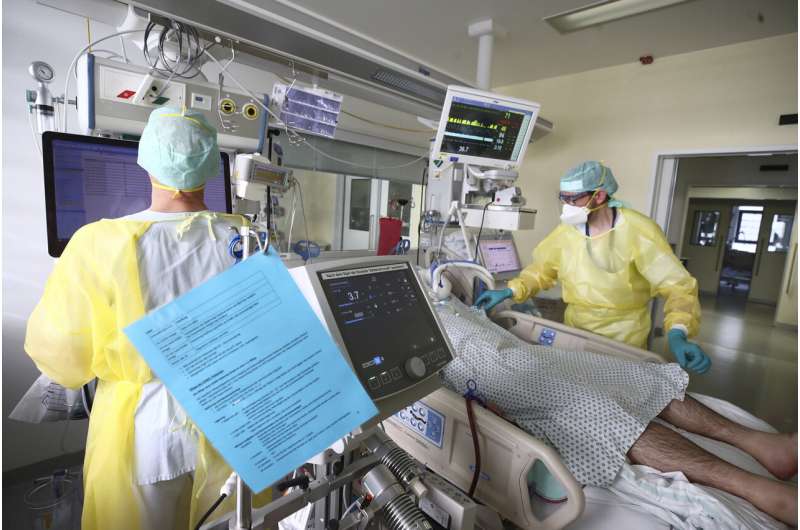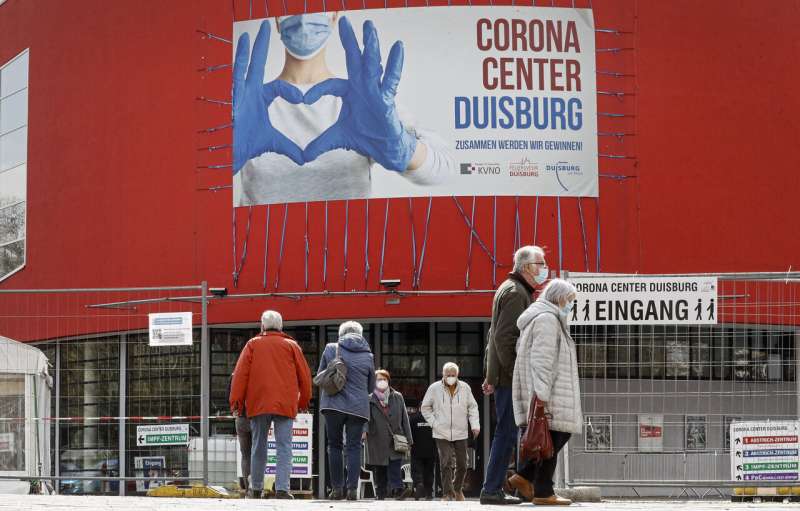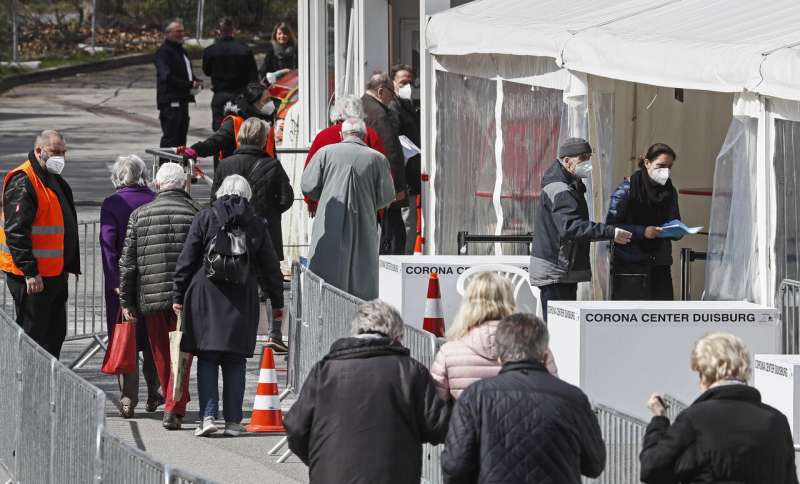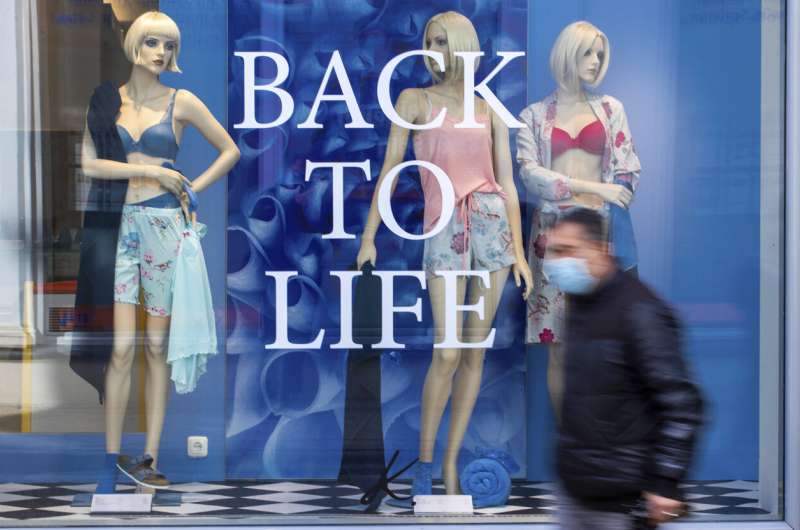German Chancellor Angela Merkel arrives for a press conference in Berlin, Germany, Tuesday, April 13, 2021. The Chancellor spoke about the current situation in the Corona pandemic and the amendments to the Infection Protection Act that the Federal Government passed on Tuesday. (Annegret Hilse/AP via Pool)
German officials said Thursday that the country has set a new record for the number of COVID-19 vaccinations in a single day, even as authorities warned that hospitals are seeing a "dramatic" rise in the number of coronavirus patients needing treatment.
The Health Ministry said 738,501 people received a first or second dose of vaccine Wednesday, continuing a sharp upward trend that began last week with the start of vaccinations in GP practices. German daily Die Welt reported that Chancellor Angela Merkel is scheduled to get the shot Friday.
But the head of the country's disease control agency noted that most Germans are still waiting for their first vaccination.
"We are in the third wave (of infections) and the situation in some hospitals is becoming dramatic," said Lothar Wieler, who heads the Robert Koch Institute.
"We can already see that some cities and conurbations have temporarily run out of free intensive care beds," he said.
Wieler called for elective surgeries to be postponed, to free up ICU capacity that he said would soon be needed for COVID-19 patients.
Some hospitals in the central state of Thuringia planned to start transferring a number of seriously ill patients to other regions, the dpa news agency reported.
The Robert Koch Institute reported 29,425 newly confirmed coronavirus infections in the past day, and 293 deaths.
An employee of the vaccination center of the Klinikum Stuttgart hospital puts a dish with Syringes of the Moderna vaccine against the coronavirus and the COVID-19 disease into a vaccination booth in Stuttgart, Germany, Thursday, April 15, 2021. (Marijan Murat/dpa via AP)
Since the start of the outbreak, Germany has recorded almost 3.1 million COVID-19 infections and 79,381 deaths.
The German government this week asked Parliament to approve a bill giving federal authorities greater powers to set uniform pandemic restrictions in regions with high infection rates. Germany's decentralized system has often resulted in a patchwork of different rules as state governors disagreed on what measures to impose.
Lawmakers are due to debate the bill Friday.
Berlin-based newspaper Die Welt reported that Chancellor Angela Merkel will receive her coronavirus vaccine Friday.
Citing unnamed government sources, the newspaper reported that the 66-year-old leader will receive the shot made by British-Swedish company AstraZeneca.
Merkel's office declined to confirm the report, referring instead to her spokesman's comments Monday that the chancellor would be vaccinated "soon and the public will be informed about it then."
-
Medical personnel wearing protective equipment transfer a patient to a newly created intensive care ward for COVID-19 patients at the SRH Waldklinikum hospital in Gera, Germany, Thursday, April 15, 2021. Currently, 21 Covid-19 patients are receiving intensive care in the ICU unit at the hospital. (Bodo Schackow/dpa via AP)
-
Medical personnel wearing protective equipment work in the intensive care ward for COVID-19 patients at the SRH Waldklinikum hospital in Gera, Germany, Thursday, April 15, 2021. Currently, 21 Covid-19 patients are receiving intensive care here in the ICU unit at the hospital. (Bodo Schackow/dpa via AP)
-
People enter and leave the corona center in Duisburg, Germany, Thursday, April 15, 2021. The center offers COVID-19 tests as well as vaccinations against the coronavirus. (AP Photo/Martin Meissner)
-
People enter the corona center in Duisburg, Germany, Thursday, April 15, 2021. The center offers COVID-19 tests as well as vaccinations against the coronavirus. (AP Photo/Martin Meissner)
-
A man wearing a mouth-nose protection to protect against the coronavirus walks past a department store window with the words "BACK TO LIFE" in Schwerin, Germany, Thursday, April 15, 2021. ( Jens Buettner/dpa via AP)
German authorities have restricted use of the AstraZeneca shot to people over 60 amid concerns over a small but significant number of unusual blood clots in vaccine recipients.
The European Medicines Agency has said the benefits of the vaccine far outweigh the potential risk, especially for older people who are more likely to suffer a serious form of COVID-19.
Merkel has previously said she would be willing to receive the AstraZeneca shot, and President Frank-Walter Steinmeier did so last month.
© 2021 The Associated Press. All rights reserved. This material may not be published, broadcast, rewritten or redistributed without permission.
